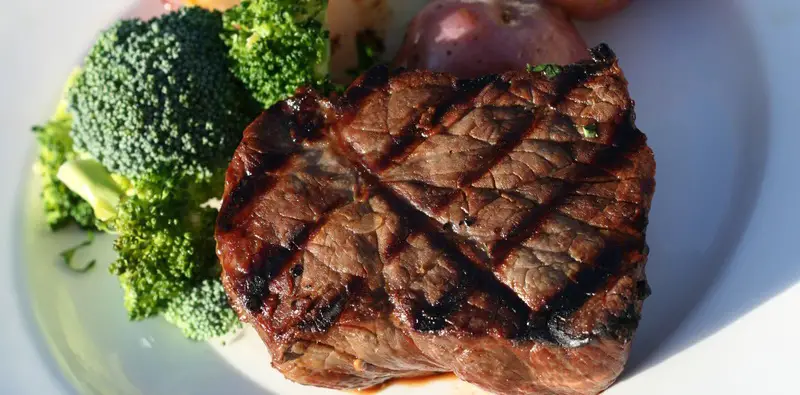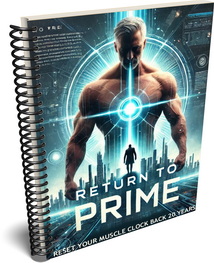Common-Sense Answers to Protein Questions
Protein: it's the nutrient that is most commonly associated with weight training, yet it's also one of the most misunderstood.
When it comes right down to it, when you train with weights, your body NEEDS protein.
But when it comes to using protein (both in supplement form and in food), there is a lot of confusion. In this FAQ, you're going to get common sense answers to some of the most controversial questions that people have about protein.

QUESTION #1: How Much Protein Does Your Body Really Need?
ANSWER:
At its simplest, your body has a baseline protein requirement that depends on a two main factors: lean body mass (muscle) and activity (type and amount).
The more muscle your body carries, the higher your protein requirement. Also, the more intense, the more frequent and the longer the activity you perform, the more protein you need.
Studies on protein requirements that demonstrate a greater need for protein often meet with much controversy in scientific literature. It seems sometimes, for some reason, that many in the scientific and nutritional community are actually anti-protein! In fact, you may have even witnessed a similar prejudice when it comes to supplements as simple as vitamins as well!
Bottom line: if you train with weights, your body is breaking down protein and you need to provide it with extra protein to help rebuild. Though the exact amounts that different sources recommend varies widely between 0.7 grams per pound of bodyweight (140 grams for a 200 lb person) to levels as high as 2 grams per pound of bodyweight (400 grams for a 200 lb person), there is a solution...
Experiment for yourself! Start with a moderate protein intake of 0.7 grams per pound of bodyweight and see how you feel and how your results are. The next week, increase your protein intake a little, adding about 20 to 30 grams to your daily total. See if that makes a difference. The following week, add a little more protein.
You may find that you need more protein than you've been taking or you may find that you don't need as much protein as you think!
QUESTION #2: How Much Protein Can The Body Digest At One Time?
ANSWER:
There are many who suggest your body can't digest and use more than 30 to 40 grams of protein at a time. I've not seen convincing research on it to say if that's true or not.
Using a common sense approach, I think we need to consider a few things.
1. Think about what state your body is in. If your body needs the protein (like after workout), I think it will use and digest more of it if it's available. Your entire metabolism is accelerated after a workout and protein use in the body shoots up. If protein is just eaten during the day, smaller servings of around 40 grams may well be better.
2. It's better to have more than you need than not enough when you need it. After a workout, I take in about 60 grams of whey protein, simply because, even if my body can't use it all, I'd prefer to have a little bit more than not have enough, which would slow down recovery.
The same can certainly apply during the day. A little extra protein that your body burns up or excretes is not going to have any appreciable negative effects. But, not having protein available when your body needs it can slow and stop muscle growth.
3. Protein doesn't digest all at once, especially with meals. Think about it this way, your stomach doesn't process and send out everything it digests all at once. It works on some, then sends some on its way. This applies more to meals than protein drinks but the fact remains, your body doesn't digest a whole meal all at once. It digest a little at a time. Think of it like time-release vitamin - your body doesn't use the whole all at once but uses it over the course of the entire digestion process.
4. Different people can handle different doses of nutrients other than protein. Does it makes sense that a 250 lb bodybuilder can only digest the same amount of protein as a 110 lb woman at one time? Different metabolic systems require and can handle different dosages.
Bottom line: The limit of 30 to 40 grams of protein at once? It could be right, it could be wrong. Just make sure you're getting plenty if and when your body needs it.
QUESTION #3: Will Eating Too Much Protein Make You Fat?
ANSWER:
The quick answer to that question is yes. However, an excess of ANY nutrient (protein, carbs or fat) has the potential to make you fat. Of the three major nutrients, protein is the LEAST likely to do so as it's primarily a structural nutrient rather than an energy nutrient.
A common sense approach to answering this question would be to break it all down by numbers.
Consider this:
1 gram of protein contains 4 calories. Your body uses approximately 40% of the calories stored in protein to break it down and digest it.
Say you eat 300 grams of protein per day and your body only needs 150 grams. That's 150 extra grams of protein per day. Of those 150 grams (which yields 600 calories), the equivalent of 60 of those grams (240 calories) will be burned digesting the extra protein.
This leaves you with 360 extra calories. A pound of fat contains 3500 calories. It's going to take a LOT of excess protein to fill up a pound of fat. Even then, if you're training hard, excess calories are burned to fuel activity (not necessarily from the protein itself but also from carbs and fat).
Bottom line: the fat-gaining effects of eating extra protein are negligible. You're better off making sure your body is getting enough protein when you're training hard.
QUESTION #4: Do I Need To Take Protein Supplements?
ANSWER:
The answer to this question is both yes and no.
You DON'T need to supplement with protein if you're getting enough quality protein in your food in your regular diet. You also don't need to supplement if you are able to get your protein conveniently and when your body needs it (especially after a workout).
If you can get enough protein and get it when your body needs it, there's no need to supplement with it! Food sources of protein are absolutely fine and you can build and support muscle with them.
But here's the big "BUT!"
Food sources are good for daily protein requirements BUT you SHOULD supplement with protein if you're not able to get enough quality protein in your diet WHEN your body needs it.
The very best example of this is after a hard workout. Protein supplements are easily digested by your body and very convenient to simply drink after a workout. This is the time when your body needs protein the most and getting it to your muscles quickly is a top priority. Food sources of protein are just not digested as quickly as supplements for post-workout use. Supplements are an easy way to make sure your body has the protein it needs after a workout.
Also, if you have trouble getting enough protein on a regular basis throughout the day, a protein supplement is ideal for keeping your muscles supplied consistently. It's much easier to drink a protein shake than cook and eat a chicken breast!
Bottom line: while you don't always HAVE to take a protein supplement, sometimes it's a very good idea to. If nothing else, take a protein supplement IMMEDIATELY after a workout to maximize recovery and results.
QUESTION #5: Will Eating Too Much Protein Harm My Kidneys?
ANSWER:
Only if you already have trouble with your kidneys. No studies have demonstrated damage to the kidneys with increased protein intake unless the kidneys are already damaged.
Drinking plenty of water can help the kidneys do their job of processing waste products, though! Keep in mind that there are many other variables at work in the body as well, including other bodily processes that could affect protein metabolism and excretion. If you have any concerns about protein and how your body uses it, I would definitely recommend you consult with your physician.
CONCLUSION:
These common-sense answers to frequently-asked protein questions should help you get a better idea of how you should look at and structure your protein consumption.
How to Get More Out of The Protein That You Eat
One of the big "secrets" to maximizing the protein you are eating is to use targeted nutrients such as digsetive enzymes and probiotics to help digest the protein, so your body can make use of it more efficiently.
This means you can accomplish more with less.
The specific one that I take and recommend is called Mass Zymes and it's THE best digestive enzyme supplement I've ever found.
More From Fitstep.com
| How to Do Your First Chin-Up | |
| Shred Your Back and Chest With a Superset of In-Set Supersets | |
| The Funniest Fitness Pics From Around the Web | |
| Breathe Backwards For More Effective Pulldowns |
Site Search
Subscribe to my YouTube Channel
And see every new exercise and training technique when it's released!
Recommended For You...
Return To Prime
Build muscle and strength like you did 20 years ago by turning back your physiological "muscle clock." This revolutionary approach to training will keep you strong and muscular like aging never even happened.
Learn the secrets to building muscle after 40, 50, 60 and beyond!


